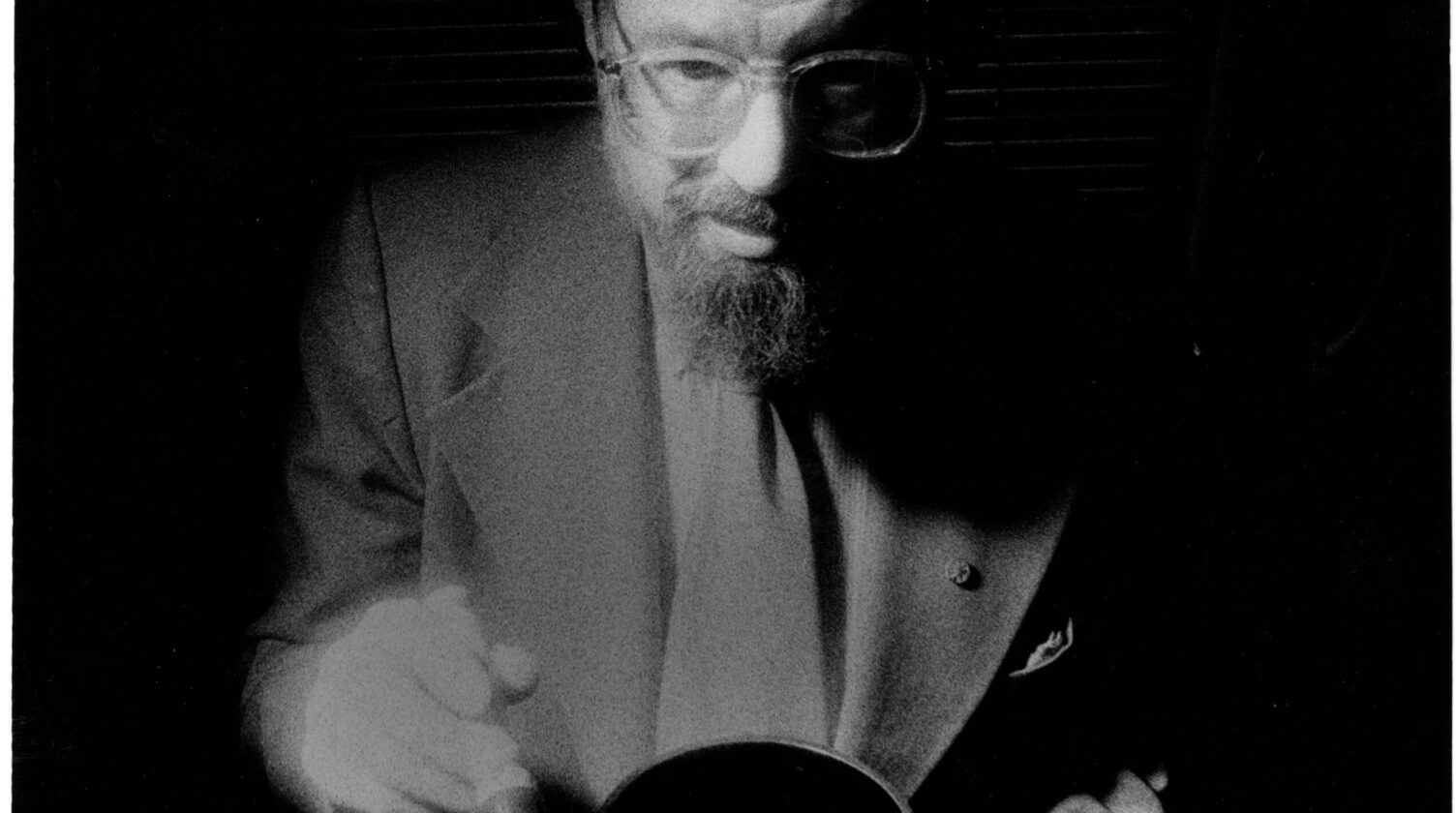
Today is a great day to share the news that Allen Ginsberg has returned with a new single called “Don’t Grow Old.” The newly reissued double album of The Lion For Real is available starting today. With equal parts spoken word, jazz, rock, and ambient, this beautiful record was originally produced by Hal Willner, and features musicians like Mark Bingham, Bill Frisell, Kramer, Arto Lindsay, Marc Ribot. I was also able to catch up with one of the collaborators, Kramer, for a brief interview below.
As a friend and collaborator of Ginsberg’s, how does it feel to get a chance to reissue this record, and further the remembrance of his work?
As a friend of Ginsberg and more than just a friend of Hal Willner’s (Hal and I were like brothers), this reissue is a dream come true. I re-mastered and released Hal’s production of Hunter Thompson’s “THE KENTUCKY DERBY…” LP last on Shimmy-Disc, but this Ginsberg double-LP goes far deeper into the creative processes of these two giants. I was able to secure access to the original 24-track tapes, and that’s when i found all the additional songs that didn’t make it onto the original LP…more than enough to make this a double-LP with words and music no one had ever imagined even existed. I also found two poems that had no music composed for them, which allowed me to write new music and become a part of the environment in which everything came together. So, how do I feel? I feel like I’m dreaming, and the dream has come true. And there’s simply no time in which Allen’s work and the memory of his extraordinary life aren’t ripe for joyous celebration. I would give anything to live in a world in which every human being on earth has his name on the tips of their tongues… imagine a world in which his poems are spoken and sung every day. There’s the REAL dream.
How do you think the impact of Ginsberg’s work is altered, or evolves, when it’s set to music…
Turning a poem into a song is not a simple task. And it’s not always the right thing to do. Allen himself tried to do that with his poems, with limited success. It was executive producer Michael Minzer and Hal Willner’s commitment to Allen’s WORDS that brought them to believe that the music should serve as a bed beneath the words, spoken as Allen would perform any poem at a poetry reading. That was the stroke of genius behind this project. The words aren’t really set to music. the musicians internalized the text of each poem, and composed the music as an impressionist painter would create their work, derived solely from their emotional reactions. If the choices are made wisely, the music – while never interfering in any way with the sound of Allen’s voice – should serve to catapult the text into the heart of each listener,where each art form is accentuated and realized where all poetry exists; in the soul of the reader. Hal was a master at this, and Allen trusted him and knew that no one else could achieve what Hal achieved.
So many great musicians are featured on this record, could you talk a bit about how the instrumentals came together for this record?
Actually, I can not bear witness to it all for you, because I wasn’t there. I was touring full-time with various bands in the late 1980’s when this LP was created, so I was unable to contribute to the original LP at the time it was made. All I know is what Hal told me, which I have described as best I could in the answer to question #2. Hal trusted the musicians he chose to contribute, and they rewarded him (and Allen) with their very best work.